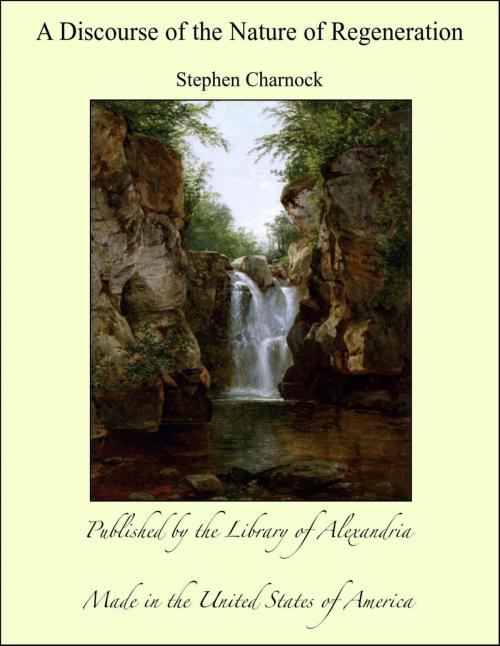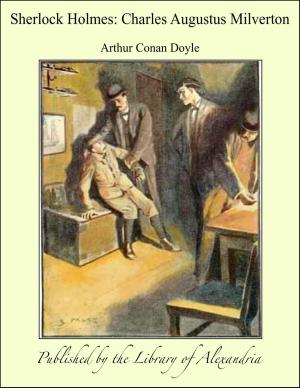A Discourse of the Nature of Regeneration
Nonfiction, Religion & Spirituality, New Age, History, Fiction & Literature| Author: | Stephen Charnock | ISBN: | 9781465577177 |
| Publisher: | Library of Alexandria | Publication: | March 8, 2015 |
| Imprint: | Language: | English |
| Author: | Stephen Charnock |
| ISBN: | 9781465577177 |
| Publisher: | Library of Alexandria |
| Publication: | March 8, 2015 |
| Imprint: | |
| Language: | English |
The apostle in those words, ver. 13, 'For whether we be besides ourselves, it is to God; or whether we be sober, it is for your cause,' defends his speaking so much of his integrity; though some men would count him out of his wits for it, yet he regards not their judgment; for if he were in an ecstasy, or 'beside himself,' his purpose was to serve God and his church, and therefore he did not regard the opinion of men, whether he were accounted mad or sober, so he might perform the end of his apostleship. The sense therefore of it, as Calvin renders it, is this: Let men take it as they will, that I speak so much of my integrity, I do it not upon my own account, but have respect to God and the church in speaking of it, for I am as ready to be silent as to speak, when my silence may glorify God and advantage the church as much as my speech; 'for the love of Christ constrains me,' ver. 14, for whom I am bound to live; and so he passes on to inculcate the duty of every man that bath an interest in the death of Christ. The love of Christ constrains us actively; the love wherewith Christ has loved us is a powerful attractive to make us live to him. It is the highest equity and justice that we should live to him who died for us. Whence observe, the true consideration and sense of the love of Christ in his death, has a pleasing force, and is a delightful bond and obligation upon us to devote ourselves wholly to his service and glory. There is a moral constraint upon the soul to this end: 'if one died for all, then were all dead,' then all were obnoxious to eternal death. Others (Vorstius, Calvin, editor) dislike this interpretation, and understand it not of the death to God brought in by the first Adam, but a death to sin and the flesh, procured by the second Adam, which death is spoken of Rom.
The apostle in those words, ver. 13, 'For whether we be besides ourselves, it is to God; or whether we be sober, it is for your cause,' defends his speaking so much of his integrity; though some men would count him out of his wits for it, yet he regards not their judgment; for if he were in an ecstasy, or 'beside himself,' his purpose was to serve God and his church, and therefore he did not regard the opinion of men, whether he were accounted mad or sober, so he might perform the end of his apostleship. The sense therefore of it, as Calvin renders it, is this: Let men take it as they will, that I speak so much of my integrity, I do it not upon my own account, but have respect to God and the church in speaking of it, for I am as ready to be silent as to speak, when my silence may glorify God and advantage the church as much as my speech; 'for the love of Christ constrains me,' ver. 14, for whom I am bound to live; and so he passes on to inculcate the duty of every man that bath an interest in the death of Christ. The love of Christ constrains us actively; the love wherewith Christ has loved us is a powerful attractive to make us live to him. It is the highest equity and justice that we should live to him who died for us. Whence observe, the true consideration and sense of the love of Christ in his death, has a pleasing force, and is a delightful bond and obligation upon us to devote ourselves wholly to his service and glory. There is a moral constraint upon the soul to this end: 'if one died for all, then were all dead,' then all were obnoxious to eternal death. Others (Vorstius, Calvin, editor) dislike this interpretation, and understand it not of the death to God brought in by the first Adam, but a death to sin and the flesh, procured by the second Adam, which death is spoken of Rom.















